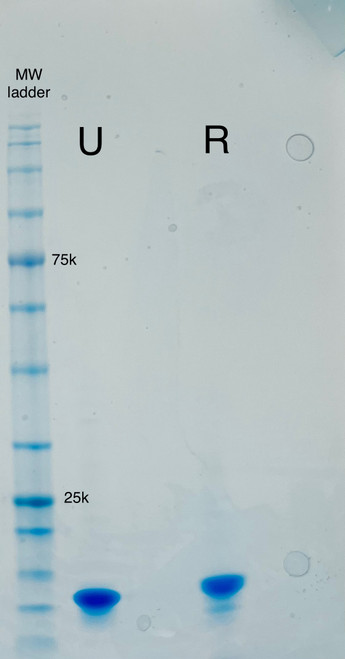G-CSF serves as a hematopoietic growth factor, prompting the growth of dedicated progenitor cells into neutrophils and boosting the capabilities of mature end-cells. Its production is triggered by specific signals from various cells like macrophages, fibroblasts, endothelial cells, and bone marrow stroma. Clinically, G-CSF aids in speeding up hematopoietic recovery following bone marrow transplantation. Notably, both human and murine G-CSF show reactivity across species. The recombinant Human G-CSF is a 18.7 kDa protein comprising 174 amino acid residues.
|
Product Specifications
|
|
| Species | Human |
| Published species |
Human, Mouse, Plant
|
| Expression System | E. coli |
| Amino acid sequence |
TPLGPASSLP QSFLLKCLEQ VRKIQGDGAA LQEKLCATYK LCHPEELVLL GHSLGIPWAP LSSCPSQALQ LAGCLSQLHS GLFLYQGLLQ ALEGISPELG PTLDTLQLDV ADFATTIWQQ MEELGMAPAL QPTQGAMPAF ASAFQRRAGG VLVASHLQSF LEVSYRVLRH LAQP
|
| Molecular weight | 18.7 kDa |
| Class | Recombinant |
| Type | Protein |
| Purity |
≥ 98% by SDS-PAGE gel and HPLC analyses.
|
| Endotoxin concentration | <1 EU/µg |
| Activity |
Determined by its ability to stimulate the proliferation of mouse NFS-60 cells. The expected ED50 is ≤ 0.1 ng/ml, corresponding to a specific activity of ≥ 1 x 10^7 units/mg.
|
| Conjugate | Unconjugated |
| Form | Lyophilized |
| Contains |
no preservative
|
| Storage conditions | -20°C |
CAUTION
For Research Use Only. Not for use in diagnostic procedures

















